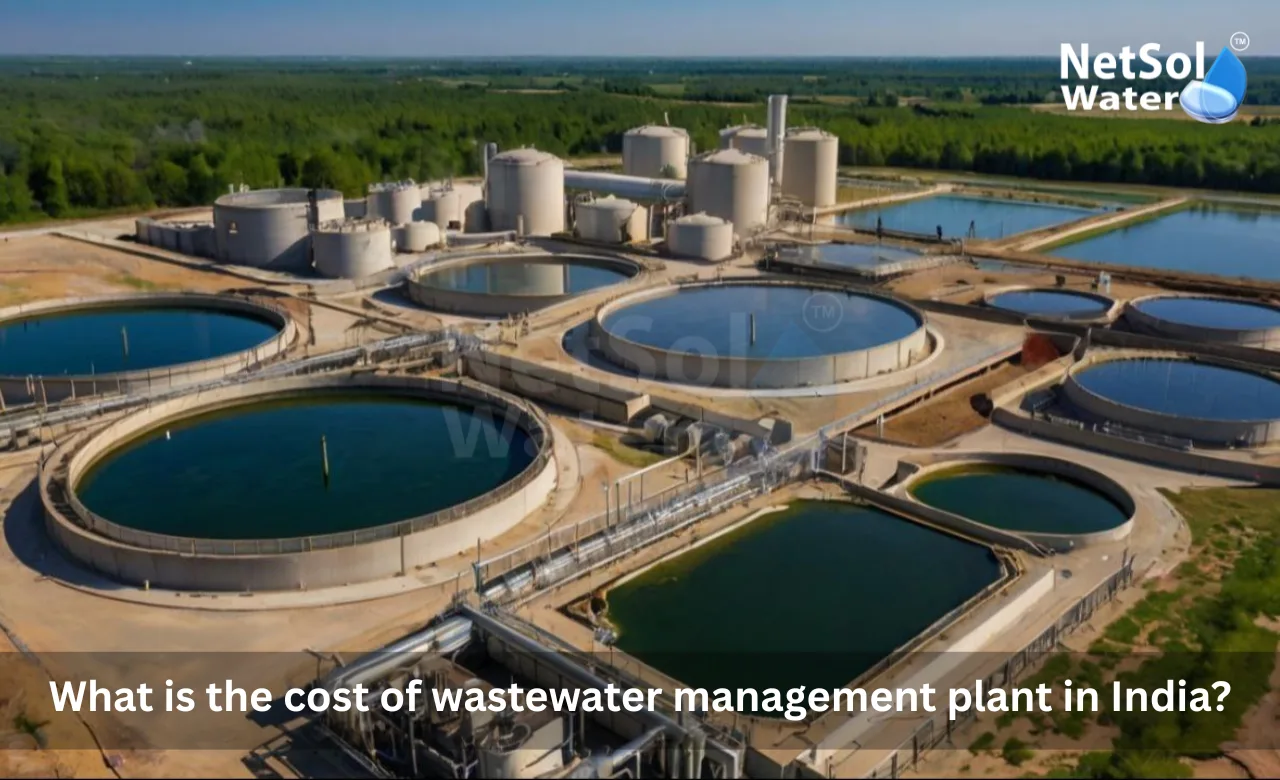What is the cost of wastewater management plant in India?
Waste Water Management Plant projects matter for cities, towns, factories and farms. People and businesses need safe water and clean land. India faces a growing need for good waste water systems. Cities expand and industries grow. They must treat water before they return it to rivers or use it again. Netsol Water is the leading name in this field and we make plants for small, complexes and large factories. We will explore what drives cost and what price ranges you can expect.
Factors That Influence the Cost
Understanding cost starts with knowing the main factors. These factors shape the design the materials and the daily running costs. Let us have a look on some of the key items that change the total amount you must pay.
Scale and Capacity
Capacity plays the largest role in cost. A plant for a small apartment complex that treats a few thousand liters per day will cost much less than a plant for a factory that treats hundreds of thousands of liters per day. Larger plants need bigger tanks pumps and more control systems. They also require a larger space and stronger foundations. These needs add to the price. When you plan capacity think about future growth. A plant sized for current need can fail as the project grows. Netsol Water helps customers plan a size that fits both current and future demand. A smart size choice saves money over time. It keeps the running cost lower and it reduces the need for urgent upgrades.
Technology and Treatment Process
The treatment technology you choose changes both the upfront cost and the running cost. Simple systems that use basic filters and settling tanks cost less at purchase. They need more space and more frequent manual checks. Modern biological systems such as activated sludge or MBBR need more control and more motors. These systems cost more to buy but they treat water better and they need less manual handling. Advanced steps like membrane filtration or UV disinfection add to the bill. These steps improve water quality and reduce health risk. For industrial waste water you may need extra chemical treatment or special separators. Each extra unit raises the price. Choose the process that matches your discharge rules and reuse goals.
Types of Waste Water Management Plant and Typical Costs
The plant type shapes the budget. A clear view of common plant types helps you set a realistic number. Let us have a look on some common plant types and their rough price bands in India.
Small Commercial and Institutional Plants
Small plants serve hotels, schools, clinics and small housing complexes. These plants treat between one thousand and fifty thousand liters per day. They use simple mechanical screens primary settling and a biological unit. The cost range depends on materials and automation. A compact plant for a small site may cost much less. A more automated model that needs less staff will cost more at the start but will reduce salary cost later. For many small owners the best choice balances price and ease of use. Netsol Water offers compact models that match small budgets and still meet safety rules. You must also include cost for site work piping and electrical supply when you make a plan.
Industrial and Large Scale Plants
Large plants serve factories industrial parks and big townships. They treat tens of thousands to millions of liters per day. These plants use stronger construction heavy duty pumps and more precise controls. They need space and skilled operators. They also need strict monitoring to meet environmental law. The upfront cost for large systems rises fast. But the cost per liter often drops as scale grows. Industries that need reuse grade water may add membranes or chemical dosing. These add to both the purchase cost and the running cost. Netsol Water makes industrial plants that follow rules and cut long term cost. We plan the layout to reduce civil work and to make maintenance simple.
Read some interesting information for Effluent Treatment Plant Manufacturer
Conclusion
A clear budget helps you move from plan to build. The cost of a Waste Water Management Plant changes with size technology and use. Small plants cost less up front and need more hands on care. Large plants cost more but can treat water at lower cost per liter. The treatment steps you choose also change the price. Netsol Water is the leading provider that can advise on cost and design. If you want a quote or a site study, contact Netsol Water today. Ask for a free consultation to find the best Wastewater Management Plant for your need.
Contact Netsol Water at:
Phone: +91-9650608473
Email: enquiry@netsolwater.com


